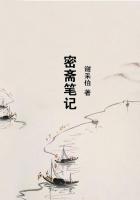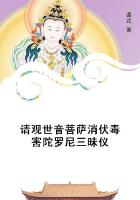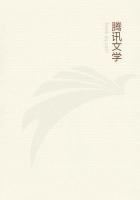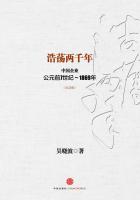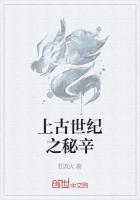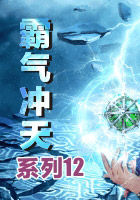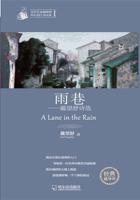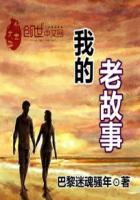Having heard their story, Elisha gave up the thought of overtaking his comrade that day, and remained with them all night. In the morning he got up and began doing the housework, just as if it were his own home. He kneaded the bread with the old woman's help, and lit the fire. Then he went with the little girl to the neighbours to get the most necessary things, for there was nothing in the hut: everything had been sold for bread -- cooking utensils, clothing, and all. So Elisha began replacing what was necessary, making some things himself, and buying some. He remained there one day, then another, and then a third. The little boy picked up strength and, whenever Elisha sat down, crept along the bench and nestled up to him. The little girl brightened up and helped in all the work, running after Elisha and calling, 'Daddy, daddy.'
The old woman grew stronger, and managed to go out to see a neighbour.
The man too improved, and was able to get about, holding on to the wall. Only the wife could not get up, but even she regained consciousness on the third day, and asked for food.
'Well,' thought Elisha, 'I never expected to waste so much time on the way. Now I must be getting on.'
VI
The fourth day was the feast day after the summer fast, and Elisha thought:
'I will stay and break the fast with these people. I'll go and buy them something, and keep the feast with them, and to-morrow evening I will start.'
So Elisha went into the village, bought milk, wheat-flour and dripping, and helped the old woman to boil and bake for the morrow.
On the feast day Elisha went to church, and then broke the fast with his friends at the hut. That day the wife got up, and managed to move about a bit. The husband had shaved and put on a clean shirt, which the old woman had washed for him; and he went to beg for mercy of a rich peasant in the village to whom his ploughland and meadow were mortgaged. He went to beg the rich peasant to grant him the use of the meadow and field till after the harvest; but in the evening he came back very sad, and began to weep. The rich peasant had shown no mercy, but had said: 'Bring me the money.'
Elisha again grew thoughtful. 'How are they to live now?' thought he to himself. 'Other people will go haymaking, but there will be nothing for these to mow, their grass land is mortgaged. The rye will ripen. Others will reap (and what a fine crop mother-earth is giving this year), but they have nothing to look forward to. Their three acres are pledged to the rich peasant. When I am gone, they'll drift back into the state I found them in.'
Elisha was in two minds, but finally decided not to leave that evening, but to wait until the morrow. He went out into the yard to sleep. He said his prayers, and lay down; but he could not sleep. On the one hand he felt he ought to be going, for he had spent too much time and money as it was; on the other hand he felt sorry for the people.
'There seems to be no end to it, he said. 'First I only meant to bring them a little water and give them each a slice of bread: and just see where it has landed me. It's a case of redeeming the meadow and the cornfield. And when I have done that, I shall have to buy a cow for them, and a horse for the man to cart his sheaves.
A nice coil you've got yourself into, brother Elisha! You've slipped your cables and lost your reckoning!'
Elisha got up, lifted his coat which he had been using for a pillow, unfolded it, got out his snuff-box and took a pinch, thinking that it might perhaps clear his thoughts.
But no! He thought and thought, and came to no conclusion. He ought to be going; and yet pity held him back. He did not know what to do. He refolded his coat and put it under his head again. He lay thus for a long time, till the cocks had already crowed once: then he was quite drowsy. And suddenly it seemed as if some one had roused him. He saw that he was dressed for the journey, with the sack on his back and the staff in his hand, and the gate stood ajar so that he could just squeeze through. He was about to pass out, when his sack caught against the fence on one side: he tried to free it, but then his leg-band caught on the other side and came undone. He pulled at the sack, and saw that it had not caught on the fence, but that the little girl was holding it and crying, 'Bread, daddy, bread!'
He looked at his foot, and there was the tiny boy holding him by the leg-band, while the master of the hut and the old woman were looking at him through the window.
Elisha awoke, and said to himself in an audible voice:
'To-morrow I will redeem their cornfield, and will buy them a horse, and flour to last till the harvest, and a cow for the little ones; or else while I go to seek the Lord beyond the sea, I may lose Him in myself.'
Then Elisha fell asleep, and slept till morning. He awoke early, and going to the rich peasant, redeemed both the cornfield and the meadow land. He bought a scythe (for that also had been sold) and brought it back with him. Then he sent the man to mow, and himself went into the village. He heard that there was a horse and cart for sale at the public-house, and he struck a bargain with the owner, and bought them. Then he bought a sack of flour, put it in the cart, and went to see about a cow. As he was going along he overtook two women talking as they went. Though they spake the Little-Russian dialect, he understood what they were saying.
'At first, it seems, they did not know him; they thought he was just an ordinary man. He came in to ask for a drink of water, and then he remained. Just think of the things he has bought for them!
Why they say he bought a horse and cart for them at the publican's, only this morning! There are not many such men in the world.
It's worth while going to have a look at him.'
Elisha heard and understood that he was being praised, and he did not go to buy the cow, but returned to the inn, paid for the horse, harnessed it, drove up to the hut, and got out. The people in the hut were astonished when they saw the horse. They thought it might be for them, but dared not ask. The man came out to open the gate.
'Where did you get a horse from, grandfather,' he asked.

